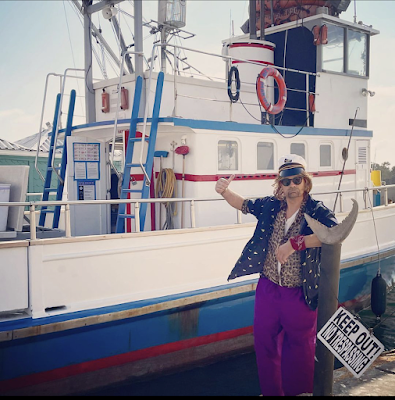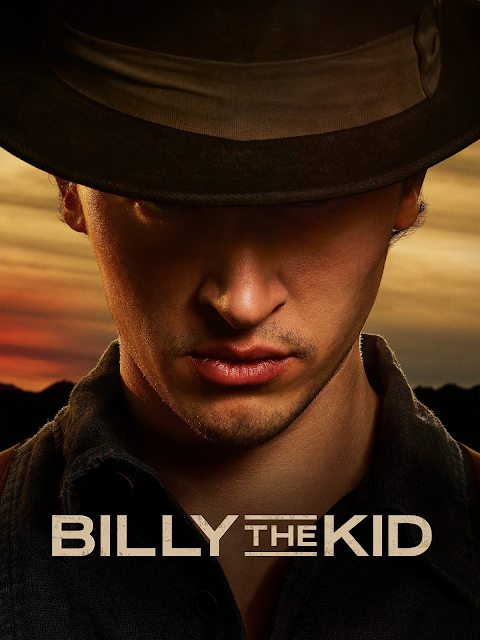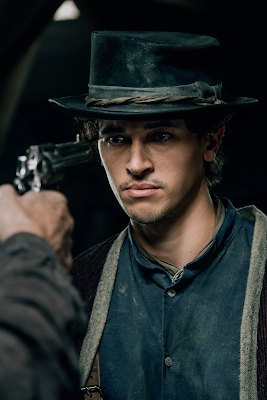Ansel Faraj's latest, The Great Nick D, is different from his prior Hollinsworth features. This one, written and directed with Nathan Wilson (who's been part of Faraj's standout ensemble for years) isn't Lovecraftian, witchcraft-oriented or Mabuse-based. It's an underdog, comeback fable that promotes humor, poignancy and redemption as part of its ingredients. To say the least, I came away inspired by the results.
Wilson portrays the titular character, Nick Dick, aka Nick Hatton, a former porn star who's now a crestfallen, beach bum, still decked in his "trademark," cheetah-spotted attire and making traction via a handy, kick scooter. His ex-girlfriend, Faye Davenport, played with gentle conviction by Alexa Wisener, left him long ago, not from contention, but rather that she sprung to Hollywood superstardom.
Nonetheless, Nick clings to those he can, close friends and random acquaintances. These folks include O-Lan Jones' starstruck, office worker, Phyllis; Lara Parker's empathetic, acting coach, Stella Channing; Justin Dray's adult-film impresario, Freddie Van Rosen; Lisa Richards' irascible Aunt Judy; and Douglas Eames' silent, fellow beachcomber, Aldo. There's also Nick's father, Jimmy, who displays great ebullience through the seasoned David Selby, and Jimmy's spry spouse, Starla, who becomes the center of inebriated attention, thanks to the irresistible Kelly Erin Decker. (Decker, incidentally, produced the film with Faraj and Wilson).
However, it's Nick's by-chance, young pal, George Russing's Ned Zimmerman, who gives the actor his second wind. Ned is, after all, an aspiring agent, even if under the unflinching thumb of his upper-echelon, agency mother, Kathryn Leigh Scott's scoffing but amusing Helen.
As luck has it, Ned secretly watched Nick's movies back in the day and admired him not only for his sexual prowess, but his versatile range. Ned's big-hearted belief in Nick lands him a movie audition with a prestigious filmmaker, Vince Lionheart, played with subtle pomposity by real-life director, Sam Irvin. As Nick prepares for his comeback, he learns that winning the role may not be as important as tapping that required self-respect to pursue it.
The Great Nick D is woven with sorrowful flashbacks, which most viewers will find relatable, in that they deal with broken hopes and dreams, and who among us hasn't experienced such? In addition, Nick's frustrating situation, as compared to the contented bliss of Jimmy and Starla, drives home his doleful situation, even if his kindly dad goes the extra mile to spur him on.
From Nick's hapless exploits, we learn he's a decent guy, affable if not disgruntled. (His angry defense of Robert Redford on a podcast is as uproarious as it's forthright). In this respect, Wilson makes Nick reminiscent of any number of folks we might know, in part tapping Jeff Bridge's Dude and Mickey Rourke's Randy Robinson, but through it all, Wilson also makes Nick his own noble man, heroic warts and all. (To accentuate Wilson's performance, Geoffrey Burch and Joshua Capp do a lovely job embellishing Nick's swagger with upbeat orchestrations, which invoke Chaplin's Little Tramp, as does Robert Murphy's photography, which captures Nick's soul-searching highs and lows.)
The Great Nick D achieves what any solid melodrama should, delivering sincerity, excellent writing/directing and all-around, quality performances. If only things were done right, this one would be an Oscar contender. Awards or not (though from what I can gather, the movie has already garnered a few), The Great Nick D deserves all the accolades it gets, and I, for one, am confident it gets a ton.

















































